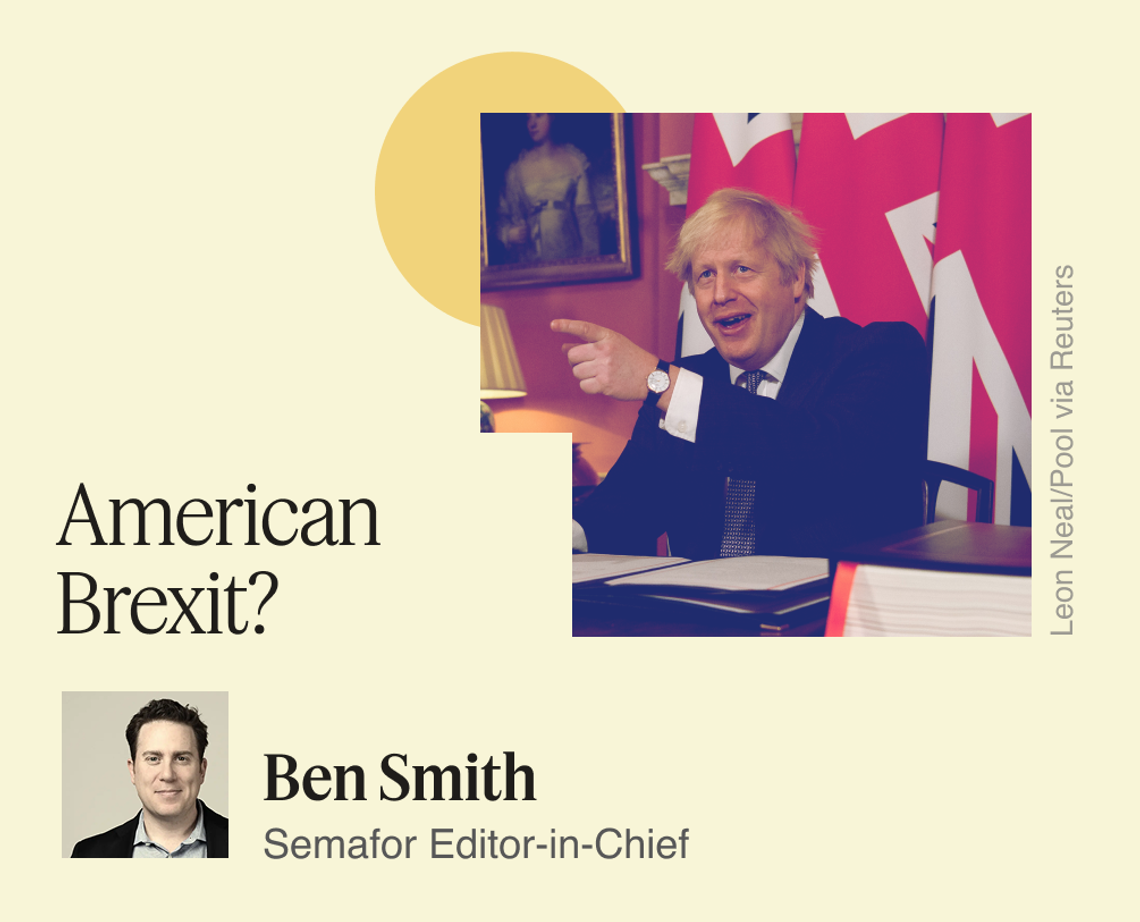 Welcome to Semafor Media, where we’re only hoarding memes. I spent last week talking to some of the people in and around Brexit, Britain’s crashing out of the European economic system and the closest parallel to what the US did with global trade last week. Then, the media and political class vastly overestimated how much voters cared about the “economy.” “British voters were told Brexit would hurt them in the wallet but they voted for it anyway,” Sun political editor Harry Cole, a pro-Brexit voice, said. “They either didn’t believe the doomsday warnings or they didn’t care, because the message they wanted to send the elites trumped the short-term pain.” The politics, he said, “defies the usual logic and playbook of ‘it’s the economy, stupid.’” For some Brits, the trade-off — a prouder, more independent, poorer, and weaker nation — may have been worth it, said Tim Shipman, the Sunday Times commentator who wrote the book on Brexit. Others “didn’t believe it would make them poorer — or more to the point, didn’t believe that the things that countries measure to decide whether they’re richer had any impact on them.” Last week, Brexit’s architects could finally point to a dividend, as one of them, Matthew Elliott, noted to me: Britain got hit with smaller Trump tariffs than did the EU. He said that Trump is succeeding one place where Boris Johnson failed — in being “very, very clear with the rest of the world why you’ve done this and what you want the outcome to be.” So far so good, perhaps. But another lesson of Brexit is that politico-media bubbles burst. Today most Brits think Brexit was a mistake, though there’s little political will to rejoin the EU. And the people who rebelled against immigration and globalization, said Shipman, “are still looking for someone who can deliver for them.” Also this week: The tragic loss of a local news champion, Piers Morgan’s expansion, a spat at the National Press Club, the Post looks at micropayments, and doubts about European content moderation. (Scoop count: 3, counting generously. Can’t wait for Max’s return next week.) Semafor’s biggest event yet, the World Economy Summit in Washington, DC, is just weeks away. On April 23-25, hear from top business executives like Netflix co-CEO Ted Sarandos and political leaders like Interior Secretary Doug Burgum. Sign up to attend virtually or in-person. |